Happy Tuesday! Attention Dispatch Premium members: Our next Dispatch Premium Town Hall has been rescheduled and will now take place this Thursday, February 6, at 8 p.m. ET. Tune in on Zoom, where Dispatch founders Steve Hayes and Jonah Goldberg will take questions and discuss the first few weeks of the Trump administration. How are the confirmation hearings going for Trump’s nominees? What is in all of those executive orders? How has Washington, D.C., changed since Trump’s inauguration? And most importantly, how does all of this affect your life?
If you’d like to attend this special live town hall, be sure to join Dispatch Premium before Thursday!
Quick Hits: Today’s Top Stories
- President Donald Trump on Monday put a one-month hold on the 25 percent tariffs on goods from Mexico and Canada that had been set to go into effect overnight. Trump said the pauses followed preliminary steps by both countries to thwart the flow of fentanyl into the United States, including Mexico’s planned deployment of 10,000 troops to the U.S. border to crack down on drug trafficking. Meanwhile, a 10 percent blanket duty on all Chinese goods took effect as scheduled just after midnight, as Beijing announced plans to impose a 15 percent counter-tariff on U.S. coal and liquefied natural gas imports beginning on February 10.
- Tesla CEO Elon Musk claimed Monday that he was “rapidly shutting down” some payments to federal contractors, seeming to confirm reports over the weekend that his Department of Government Efficiency (DOGE) team had gained access to sensitive Treasury Department data. David A. Lebryk, a senior official at Treasury, retired on Friday after he apparently attempted to deny Musk’s representatives access to the department’s federal payment system, which is used to disburse trillions of dollars each year and contains the personal information of millions of Americans. Unions representing federal workers filed a lawsuit Monday against Treasury and its head, Scott Bessent, in an effort to prevent the department from sharing the confidential data with DOGE.
- Panamanian President José Raúl Mulino said Sunday that his country would not renew its participation in China’s Belt and Road Initiative—a global investment program and one of Chinese leader Xi Jinping’s flagship foreign policy enterprises—after the deal expires in one to two years. The announcement followed Secretary Marco Rubio’s visit to Panama over the weekend, during which he conveyed that the U.S. expects the country to “take measures necessary” to end what President Donald Trump views as China’s undue influence over the Panama Canal. Rubio on Monday praised Panama’s decision to end its involvement in the Chinese initiative as “a great step forward.”
- The Department of Homeland Security on Monday revoked Temporary Protected Status for Venezuelans living in the U.S., putting 350,000 immigrants—many of whom fled the authoritarian regime of President Nicolás Maduro—at risk of deportation. The move reversed the Biden administration’s decision last month to renew the protections for 18 months. In a memo announcing the change, the department said Homeland Security Secretary Kristi Noem had “determined it is contrary to the national interest to permit the covered Venezuelan nationals to remain temporarily in the United States.”
- A federal judge issued a temporary restraining order on Monday blocking the Office of Management and Budget’s attempted freeze on the disbursement of federal grants, loans, and other financial assistance. The order came as an earlier administrative stay preventing the White House directive from taking effect expired at 5 p.m. on Monday. The Trump administration’s move could run afoul of the Constitution “by interfering with Congress’s appropriation of federal funds,” Judge Loren AliKhan wrote in the 30-page opinion, adding that the executive’s effort “attempted to wrest the power of the purse away from the only branch of government entitled to wield it.”
- The Senate voted 59-38 Monday to confirm Chris Wright to lead the Department of Energy, with eight Democrats joining Republicans in support of his bid. Wright, the CEO of fracking company Liberty Energy, will be responsible for shepherding the Trump administration’s ambitious initiative to boost domestic energy production.
U.S. Aid and USAID in Peril
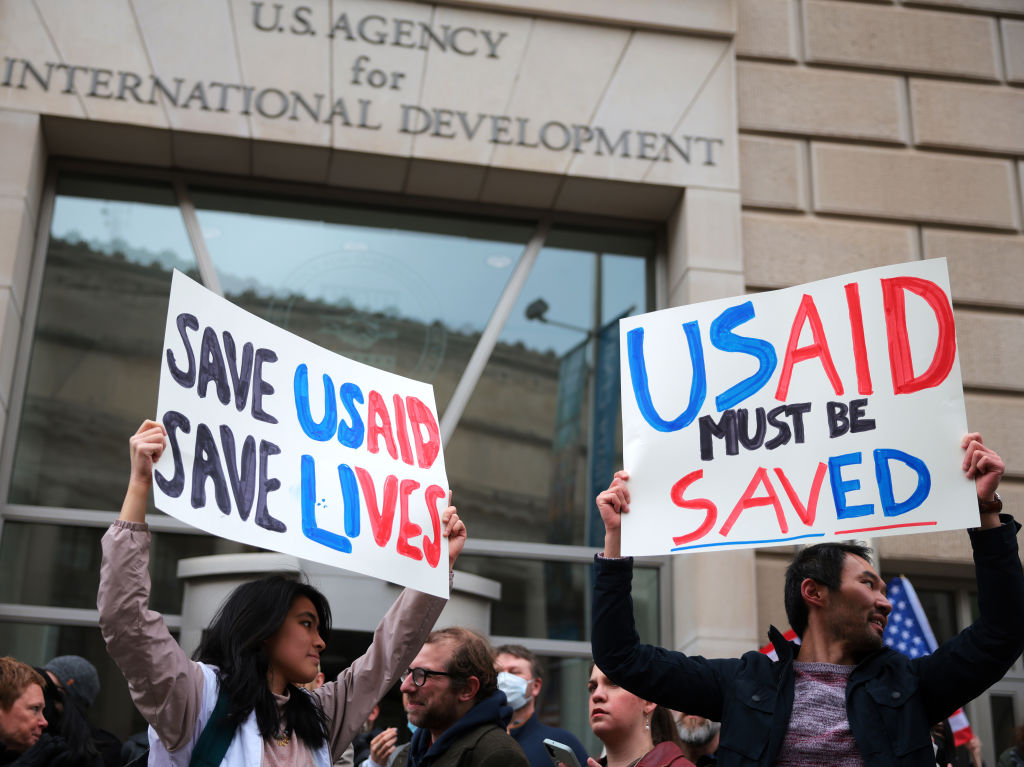
In 2017, President Donald Trump tried to cut funding for the State Department and the Agency for International Development (USAID), proposing a 28 percent reduction as part of his first budget proposal. A Republican-controlled Congress summarily rejected Trump’s requested cuts—deeming international aid too important to U.S. foreign policy and humanitarian relief efforts—and Capitol Hill lawmakers continued to do so for each appropriations cycle of the first Trump administration.
Two weeks into his second term, Trump has leaned on executive action to carry out an apparent gutting of U.S. foreign aid. He signed an executive order on his first day in office freezing funding disbursements for all foreign aid programs for 90 days. The State Department followed up on the order with a stop-work directive on all new foreign aid grants. And now, Trump seems content to bypass Congress as the administration considers whether to shutter USAID—an agency originally created by an executive order in 1961 but codified by Congress in 1998—entirely.
The future of American foreign aid seems up for grabs as Elon Musk and his Department of Government Efficiency (DOGE) push to end USAID while Secretary of State Marco Rubio has signaled he’d like to restructure and preserve some of the agency’s work. Meanwhile, aid groups, USAID officials, and lawmakers say the disruption is already harming the millions of people around the world who benefit from American assistance—and that continuing the freeze could do irreversible long-term damage to U.S. aid infrastructure.
How does American foreign aid function under the current system? The U.S. government disbursed $72 billion in foreign assistance during fiscal year 2023. Of that, USAID managed $43 billion, the State Department handled $21 billion, and the rest was overseen by more than a half dozen other departments and agencies. America is the single largest source of foreign aid globally, and U.S. foreign assistance accounted for 42 percent—nearly $14 billion—of global humanitarian aid contributions tracked by the U.N. in 2024.* But foreign aid accounts for less than 1 percent of the U.S. budget, and other wealthy nations like Germany provide more aid as a proportion of their economy.
U.S. foreign aid funds everything from economic development assistance to counterterrorism and anti-human trafficking programs to some of the most successful public health interventions in history. For example, the President’s Emergency Plan for AIDS Relief (PEPFAR), which provides antiretroviral drugs to treat HIV/AIDS in more than 50 countries, has saved an estimated 26 million lives since the program began in 2003. The program currently offers lifesaving treatment to 20 million people, including more than half a million children.
But nearly all of that work ground to a halt with Trump’s 90-day freeze and subsequent stop-work orders. Rubio issued a waiver on January 28 to exempt “life-saving humanitarian assistance” from the restrictions, including elements of programs like PEPFAR. But despite the waivers, the funding remains frozen, according to aid groups responsible for implementing the programs.
“Some of our partners have received the paperwork to say, ‘you can resume work,’” Tom Hart—CEO of InterAction, a group representing 170 U.S. nongovernmental organizations (NGOs) working to provide humanitarian relief and economic development assistance, including those working on PEPFAR—told TMD on Monday. “The problem is the funding has been frozen. So, even though the policy and the paperwork are in place, the waiver process is broken.”
“There is an assumption by the public and many other policy makers that the waiver process was a positive step, but the actual implementation below that is not happening,” he added.
Several Republican lawmakers also suggested Monday that the waivers aren’t working. “I’m told that drugs are still being withheld at clinics in Africa,” Republican Sen. Bill Cassidy of Louisiana said Monday of PEPFAR. Sen. Jerry Moran, a Kansas Republican, urged Rubio “to distribute $340 million in American-grown food currently stalled in U.S. ports to reach those in need,” adding that “time is running out before this life-saving aid perishes.”
In the last two weeks, hundreds of USAID staff and contractors have been fired, and the Trump administration placed on leave dozens of senior USAID personnel it claims were trying “to circumvent” the president’s executive orders. “Those are folks who are not political appointees,” a senior manager who has worked at USAID since before the first Trump administration and requested anonymity to speak candidly, told TMD. “By eliminating that tier, you’ve basically decapitated the head of the whole agency, and you’ve severed the channel by which staff needs, questions, issues, etc., and operational issues and decisions can travel up and down.”
The attacks on USAID reached a fever pitch over the weekend, as Musk claimed that the agency had been shuttered. “USAID is a ball of worms, there is no apple,” he said in a conversation late Sunday hosted on his social media platform X. “And when there is no apple, you’ve just got to basically get rid of the whole thing.” More than 1,000 personnel, many of whom are working in active conflict zones, have been locked out of the agency’s internal systems without warning. An effective gag order was imposed on staff. The USAID X account was deleted, its website taken offline, and the agency’s main headquarters in Washington, D.C., was closed to staff as of Monday. There was even a reported standoff on Friday between DOGE staffers and USAID personnel at the agency’s headquarters.
Musk, who said early Monday morning that his team had fed USAID “into the wood chipper,” seems to be taking some of his cues from right-wing personalities who see the agency as a malevolent force of the deep state. These online voices often adopt the same claims as authoritarian governments who try to portray American foreign aid as simply a cover for regime change operations. “USAID is a criminal organization,” Musk said Sunday. “Time for it to die.” He claimed that Trump agreed to shut down the agency, but the president suggested Sunday a decision had yet to be made. “It’s been run by a bunch of radical lunatics,” Trump said. We’re getting them out, and then we’ll make a decision.” On Monday, he said, “The concept of [USAID] is good, but it’s all about the people.”
Some former officials are concerned the disruption and the demonization of USAID could affect the safety of personnel serving abroad. Sarah Charles, the head of USAID’s Bureau for Humanitarian Assistance who left the agency this week, noted Monday that her staff members—many of them U.S. military veterans—“are right now deployed overseas far from their families, some in war zones, and locked out of USAID systems.” She added, “Our partner staff, even further afield, are not getting paid and conspiracy theories about the work of the agency make them particularly unsafe.”
Aid officials have emphasized that reforms and cuts to U.S. foreign aid are appropriate and in some cases even necessary. But they contrasted serious reform efforts with a burn-it-down approach. “Having occupied senior positions in overseeing foreign assistance, I can attest that there are better and more efficient ways to manage and distribute it,” Michael Schiffer, an assistant administrator for Asia at USAID until January, wrote last week. “But there are smart ways to conduct reviews and pursue reform—ways that preserve America’s influence and interests—and then there is the catastrophic path that the Trump administration appears to be pursuing now.” Charles made a similar argument: “There are lawful ways—working with Congress—to reform (and cut) foreign assistance, this is not it.”
Rubio said Monday that Trump had appointed him acting director of USAID. He criticized the agency as insubordinate and in a letter to Congress outlined plans to restructure the agency, including by potentially abolishing it. “There are things that we do through USAID that we should continue to do, that makes sense,” he said in an interview Monday. “We’ll have to decide is that better through the State Department, or is that better through a reformed USAID? That’s the process we’re working through.”
It’s unclear whether the executive branch has the legal authority to fundamentally restructure or do away with USAID. Legal observers argue the president cannot abolish the agency without an act of Congress. The legality of Rubio’s appointment as acting administrator and the changes he signaled is also uncertain. His letter to Congress appears to be an attempt to comply with statutes requiring congressional notification and consultation for actions taken to shrink USAID, but Republican Sen. Susan Collins of Maine said Monday that she didn’t believe Rubio’s letter “satisfies the requirements of the law.”
In the meantime, as the funding freeze continues, some aid groups and programs have already begun to close up shop. “To be clear, there is no such thing as a temporary pause,” argued Schiffer, the former assistant administrator. “When an NGO, a small business, or an American company that receives U.S. government funding to implement U.S. foreign assistance is told to stop work, even for 90 days, that means people are fired, expertise is lost, and programs are shut down with no guarantee they’ll start back up, even if they survive the review.”
“I’m hearing from CEOs every day that they have laid off 50 percent of their staff, two-thirds of their staff, closed a country program,” Hart told TMD. “They don’t have huge endowments and reserves to carry while this gets sorted out.”
“We understand a review process,” he added. “We do not understand dismantling foreign aid and then reviewing it.”
Worth Your Time
- In a deeply reported piece for the New Yorker, Dexter Filkins looked into the U.S. military’s efforts to overcome one of its greatest recruiting crises since the draft was scrapped more than 50 years ago. “At the end of the Second World War, the American military had twelve million active-duty members. It now has 1.3 million—even though the population has more than doubled, and women are now eligible for armed service. ‘The U.S. military has been shrinking for thirty years,’ Lawrence Wilkerson, a former senior State Department official who leads a task force on the challenges facing the armed services, said. “But its global commitments haven’t changed,’” Filkins wrote. “To attract recruits, the Pentagon has loosened dozens of strictures. The maximum age has been raised—to as high as forty-one, in the Navy—and pilot programs have been instituted to make it easier for people with a history of asthma or A.D.H.D. to join up. The Army has eased its policies on soldiers’ appearances and struck down rules that forbade tattoos on the neck and hands; tattoos associated with gangs or extremist groups are still prohibited. … Pentagon officials are also considering allowing in recruits who have tested positive for marijuana.”
Presented Without Comment
Complex: Joe Biden Signs With Hollywood Talent Agency CAA Following His Term in Office
In the Zeitgeist
Has technology gone too far, or just far enough? A YouTuber recently posted an AI-generated version of The Beatles’ Rubber Soul as a Motown album and it’s pretty convincing, to say the least.
Toeing the Company Line
- In the newsletters: Nick Catoggio wondered (🔒) why Americans aren’t rejecting Donald Trump’s power grabs and Kevin Williamson wrote about (🔒) peak oil, Malthusian catastrophe, and other conspiracy theories.
- On the podcasts: Erin Hawley joins Sarah Isgur and David French on today’s Advisory Opinions to discuss the latest upheavals in the federal government.
- On the site: Kevin warns that political extremes are uniting against the center, Mike Warren reports on Elon Musk’s efforts to reshape the government, and Michael McFaul argues that Trump is undermining America’s ability to compete with China.
Let Us Know
Does freezing U.S. foreign aid damage America’s influence abroad?
Correction, February 4, 2025: This newsletter originally stated that USAID alone, rather than overall U.S. foreign aid, accounted for 42 percent of global humanitarian aid tracked by the U.N. in 2024.




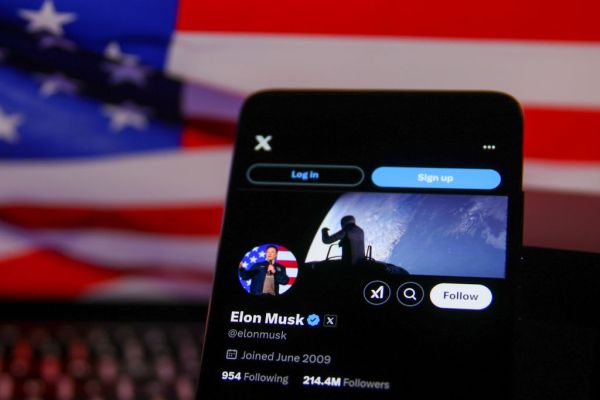
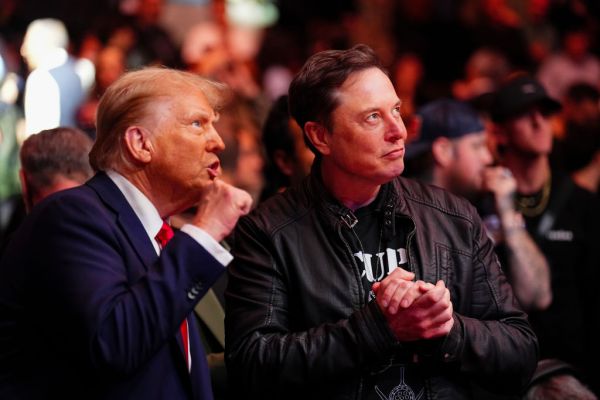
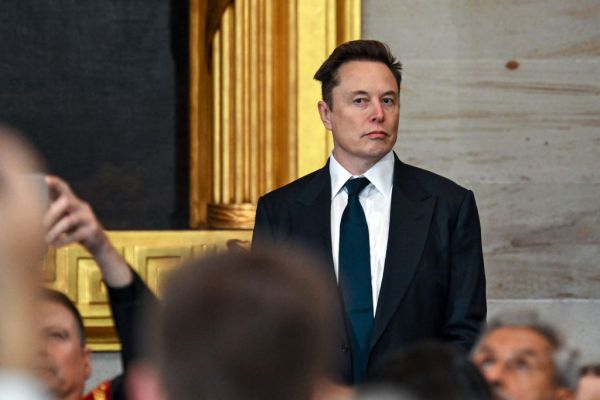

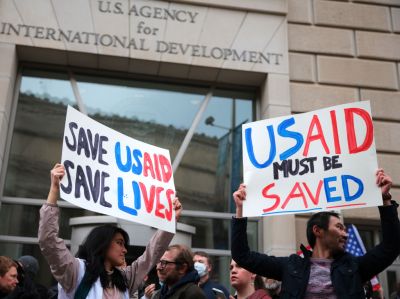
Please note that we at The Dispatch hold ourselves, our work, and our commenters to a higher standard than other places on the internet. We welcome comments that foster genuine debate or discussion—including comments critical of us or our work—but responses that include ad hominem attacks on fellow Dispatch members or are intended to stoke fear and anger may be moderated.
With your membership, you only have the ability to comment on The Morning Dispatch articles. Consider upgrading to join the conversation everywhere.